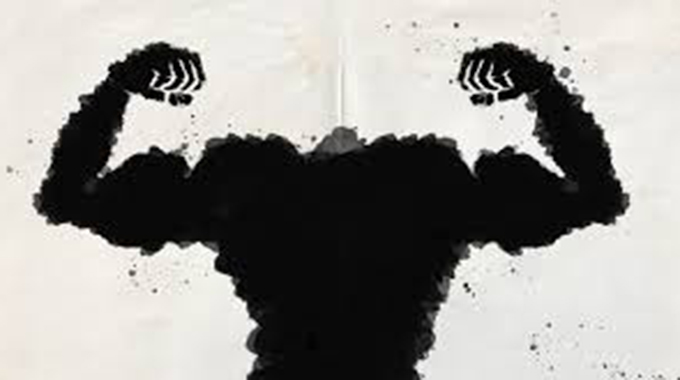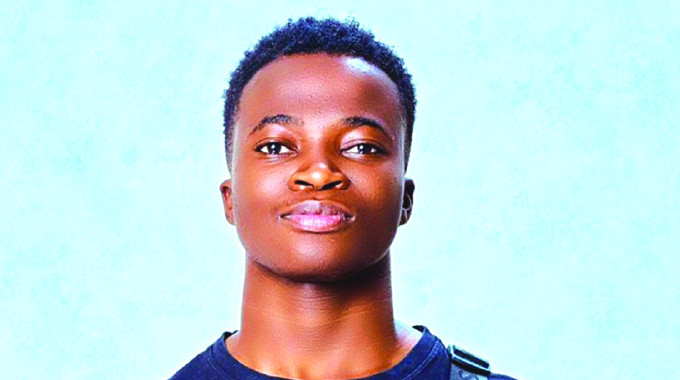Rigid masculinity concepts pushing men to suicide

Kelebogile Motswatswa Correspondent
Social conditioning and a rigid definition of what it is to be a man is pushing an increasing number of men to suicide. As a society, we need to discard narratives and socialisation that are sending young men to their graves.
Those who have engaged with my musings on the topic know that I’m no stranger to feelings of suicide. My intimacy with it runs far deeper than I have the words to express.
So, naturally, whenever I learn that someone has succumbed to its fervent invitations, I’m immediately triggered.
This was the case when I heard that Riky Rick lost his battle to the heinous clutches of depression, at the age of 34.
My heart sank not only because of my familiarity with the dark night of the soul, but also because it made me think about the many men in South Africa who suffer in silence and die in loneliness.
There is an urgent need to have an open conversation about the mental health of men in this country.
On 23 February, the well-loved and immensely talented South African rapper and fashion icon Riky Rick died by suicide, alone in his recording studio.
He had always been hyper-visible, as a prolific artist who not only produced award-winning music but also empowered those who came after him.
The news of his passing threw me into indescribable despair as I tried to make sense of the tragedy.
It also made me think about the men in my life who appear to be doing well in their careers, but could be going through challenges they feel they can’t open up about for fear of being thought of as less of a man.
As someone who suffers regular and prolonged depressive episodes, my ambition is, sometimes, burdensome.
I love the work that I do, but I often wish that I didn’t have to work so hard, constantly. There are days when I find it hard to keep up with my passions.
There are moments when suicide courts me, promising a more peaceful life in which there is no striving required for me to survive.
Living with a mental condition means that most days I have very little energy and motivation, it incinerates my sense of worthiness and perception of myself.
But, as a woman, I find it much easier to reach out for help because society openly welcomes and enforces my vulnerability and fragility.
Unfortunately, this same invitation is not extended to men.
As a woman in South Africa, I’m acquainted with the violent behaviour of men and its impact on the mortality rate of women.
I believe that we must ardently endeavour to reduce all forms of gender-based violence, with relentless vehemence.
And with the same conviction, I see the need for a compassionate and empathetic conversation about the struggles of men in this country.
Ours is a society that is still reeling from the trauma of oppression and a migrant labour system that disintegrated families, leaving many fatherless, with no one to provide a healthy model of being a man in the world.
Masculinity is fraught with perspectives and expectations that influence how men navigate the world, how they relate to others and how they respond to their distress.
There is a problematic Zulu adage that says “indoda ayikhali’” which means “a man doesn’t cry”.
I have witnessed men, and women, say this to little boys whenever they shed even the slightest tear. This illustrates the type of masculinity that men are encouraged to not only espouse, but also perform.
Socially and culturally constructed notions of manhood dehumanise men by limiting their ways of being. Men have been taught that to be ‘a man’ is to be angry, callous, and lacking in ‘softer’ emotions such as empathy and melancholy.
As noted by academics Chika Ezeugwua and Oluyinka Ojedokun, this “internalisation of masculine norms makes men more susceptible to mental health problems”.
In 2019, the World Health Organisation reported that South Africa has the second-highest rate of suicide in the world, and it was found that death by suicide was higher among men.
This statistic makes sense considering how ideas of manhood dissuade men from acknowledging their emotional pain and seeking the necessary support from their loved ones or medical professionals.
Worse still, men don’t even talk among themselves about their issues, which I believe adds to their feelings of loneliness.
Women are victims of patriarchy and men are prisoners of it.
While men definitely benefit from patriarchy — it affords them more power, privileges, liberties and opportunities than it does women — it also prevents them from exploring and expressing the entirety of their person-hood.
If you don’t view yourself as fully human then it will be incredibly difficult for you to open yourself up to the fullness of the human experience, which is often accompanied by sadness, fragility, shame, insecurity, uncertainty, and a desire to nurture and be nurtured.
There is only one emotion that patriarchy values when expressed by men; that emotion is anger. Real men get mad. And their mad-ness, no matter how violent or violating, is deemed natural. Anger is the best hiding place for anybody seeking to conceal pain or anguish of spirit,” wrote American author, professor, feminist, and social activist, Gloria Jean Watkins, better known by her pen name, bell hooks.
We need to de-gender and de-racialise mental illness; depression will attack irrespective of race or gender, privilege or power.
Men need to be reminded that they too are human, which means it’s okay, and natural, to feel other emotions besides anger.
As a society, we need to discard narratives and socialisation that are sending young men to their graves. We need to replace them with ideals that consider men’s humanness – which transcends gendered roles and expectations – and provide psychological safety for all and sundry.
To the men in my life, and even those I don’t know, I’m speaking to you as a fellow human being; I love you and I see you.
I invite you to step into and embrace the fullness of your humanity; which I believe will not only help ease the pressure to be an ideal of a man that negates your personhood but will also change how you view and relate to everyone who doesn’t identify as a man.
Being fully human first doesn’t only come with uncertainty and despair, it also comes with compassion and kindness and a willingness to see and be seen, which results in appreciating the value in another human’s life, seeing them as worthy of love, respect and protection. – New African









Comments